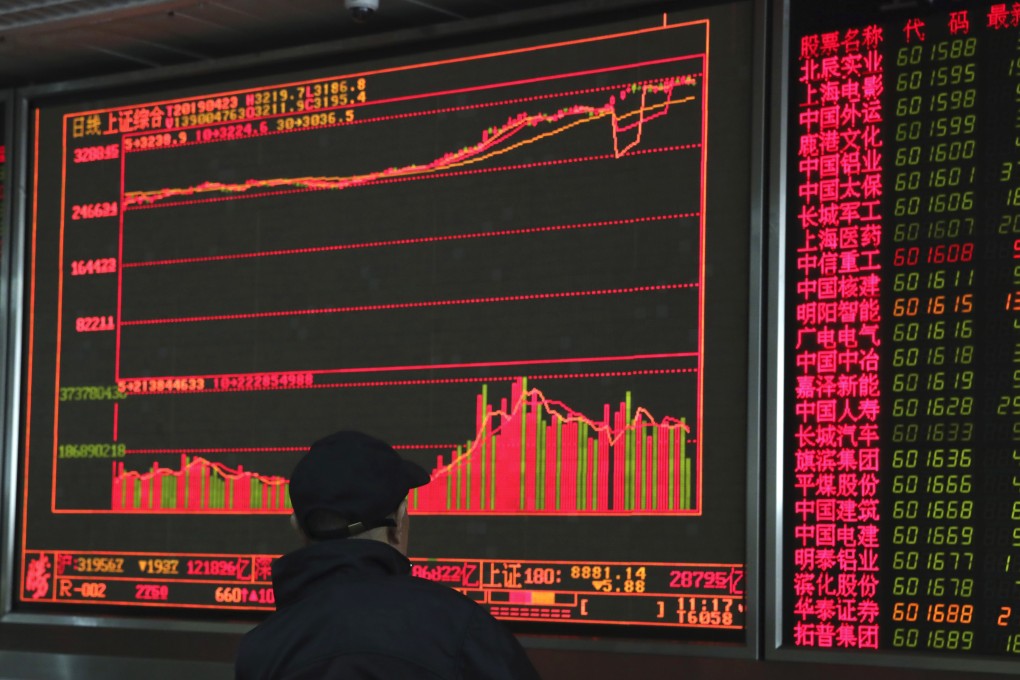Chinese stocks’ world-beating rally risks losing momentum as Beijing rolls back stimulus
- Analyst says the market is due for a correction
- Politburo meeting stresses on deleveraging and curbing asset bubbles

Chinese stocks’ world-beating rally is at risk of faltering, as a meeting of the Communist Party’s highest decision-making body signalled a tougher stance on further policy easing.
After an almost 30 per cent surge that has made the Shanghai Composite Index the best-performing equity benchmark this year globally, the gauge slid the most in four weeks on Monday. A change of tone at the Politburo meeting rattled traders’ nerves, with top policymakers re-emphasising deleveraging and curbing asset bubbles. That was seen by some investors as a sign that Beijing has acknowledged the strength of the economy and would probably trim its efforts to further bolster growth.
“Policies will be tightened marginally going forward,” said Wu Kan, an investment manager at Soochow Securities in Shanghai. “The correction in stocks may have already started. It has been a one-way market this year and we’ve not experienced a decent correction, which isn’t healthy for the market.”
The overheated sentiment has been cooling quickly. Now, less than 5 per cent of the stocks on the Shanghai Composite were above the technically overbought level, a sharp decrease from 73 per cent seen in March, according to Bloomberg data. The index dropped 0.3 per cent on Tuesday, extending after a 2.3 per cent slump in the previous session.
The market was not totally caught off guard by a statement from the Politburo meeting on Friday. There have been some signs pointing to a subtle shift in policies. The central bank had halted reverse repurchases, a practice of injecting liquidity into the financial system, for 18 consecutive days through last week after aggregate financing and new loans significantly beat estimates. That sent the overnight repo rate to a four-year high.